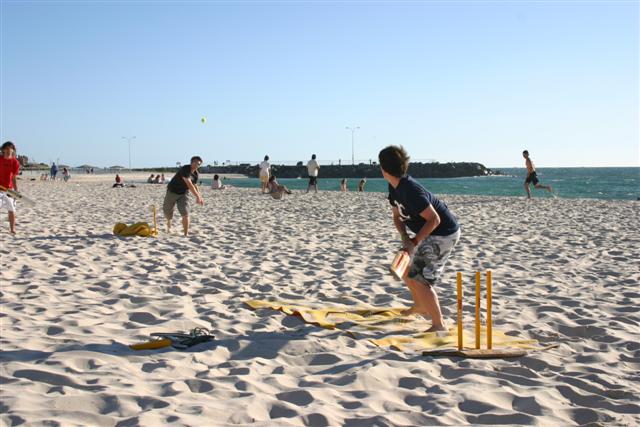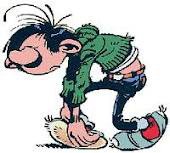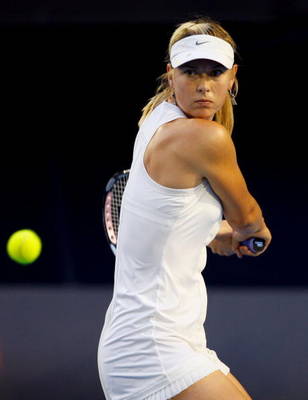Prodigy round every corner
A prodigy is born every second. By definition he is one who has exceptional talents. In the world of children you might identify a child who has special abilities at school, in maths or in languages. How can you tell you have a tennis prodigy in front of you?

Normal kids?
I follow several sports very closely and I was fascinated by a report about one cricketer who recently broke into the England team at a slightly later than average age, of 26. When he came into the team, he was an immediate success, and his talents were so established and so mastered that you could have assumed that he had been playing at the highest level since 19 or 20 years old. In fact, a coach was interviewed who had worked with him when he was 19 and he was asked an interesting question - did you know at 19 that one day this player would become one of the top players in the world? His reply - no, not really.

Discovered playing on the beach
You might say that the coach is not always in the best position to judge a player. The coach will look at a player, and more probably a group of players, and he will view any one player in a certain context - the coach's ambitions for his players may well be guided by what is going on around him and the general criteria present in the professional game - at that time. There may be qualites in the player that remain hidden because simply the coach is not looking for them - they are not in vogue.That relatively unadmired 19 year old then has to develop his "prodigious " talents on his own. It may be that a parent believes that this player is a prodigy, and encourages the player to take his talents as far as he can, to seek out the best coaches, generally the best people for detecting and nurturing talent. But, through mischance he may spend these critical years without being detected by any important or influential person.
Spot a special talent
Is it important that we can detect and identify talent? If we have proven structures in place for developing a prodigy, any prodigy will quickly find his niche, perform well, and come to the attention of the coaches.

Good-looking player
This sounds great. You have plenty of tennis prodigies out there, and all you have to do is introduce them into the system and in no time the cream will start to come to the surface.
It doesn't work like this, because of the very nature of the prodigy.
We have said that a prodigy, by definition, has exceptional natural talents. That means that already at age 5, say, this child will be well ahead of his peers. Let's imagine how this pans out where the tennis structures are "the best in the world".
A child starts at his tennis club, and for some unknown reason, is able to produce some shots, and run, and compete, instantly. With other children the coach must display patience. A child for example may be a very willing runner, but not be very competitive; a child may have a lovely feeling for the ball, but may not like running much. So, with "normal" children, the coach must spend a good deal of time ignoring their qualities, and reinforcing their weaknesses. With the prodigy, the whole package is in place, at that time, in that context.
In a short time, the child supertalent who made such an impact at age five will be moved onto regional squads, where , theoretically, other prodigies will have found their way. This is the first danger moment. The range of talents discovered will start to be compared with each other. Through competition, the relative excellence of each will be established.

Drop out
Now let's assume that our five year old near genius does rise to the top in his regional group. By the time he is nine, he is winning regional and national events, and has been selected for national squads, and has access to a wider range of more experienced trainers. For such a player to take the next step into the world of pro tennis is surely just a formality.
The major problem with achieving so much so young is that there develops an assumption that you are No. 1 in your category, in your environment, and you will stay there. The structure around the player reinforces that. What happens when this prodigy, by the ranking criteria of the day, becomes No.2, and an even greater talent has appeared. Will that No. 2 be able to overcome his defects and nevertheless become No.1?

Transforming talent into ...
The statistics make pretty horrible reading. Nearly all of the child prodigies of the game of tennis have already disappeared from the game by the time they are a teenager. It is not so much the fact that so many prodigies have great motivational difficulties if they are forced into position No.2 or , God forbid, No. 3. It is more the fact that those spectacular qualities at age five have no real relevance to the game at age ten or age fourteen. Every category requires particular talents in order to get to the top. And a prodigy at age 5 can look seriously inadequate placed, with normal development, in the same game at age fourteen.
On the reverse side, just like in my initial example, many almost totally undetected talents, or even those that spend 15 years being treated as "nothing special", suddenly expose a prodigious talent. 80 % of players in the men's professional game didn't have a remarkable record when they were young.Some may not even have picked up a racket seriously until they were 14.
How do you deal with this problem?
First, don't get too excited when you see a child do amazing things at age 5. So much has to happen for that child to get through all the hoops into the professional game.
Second, statistics prove that essential talents necessary to survive in the pro game emerge later, and not at age five.
Being a prodigy is no big deal.

Transition - prodigy to superstar
ATP and WTA Coach
on tour
Five of our most popular pages
. tournament win
. finding a sponsor
. the touring pro
. the master at work
